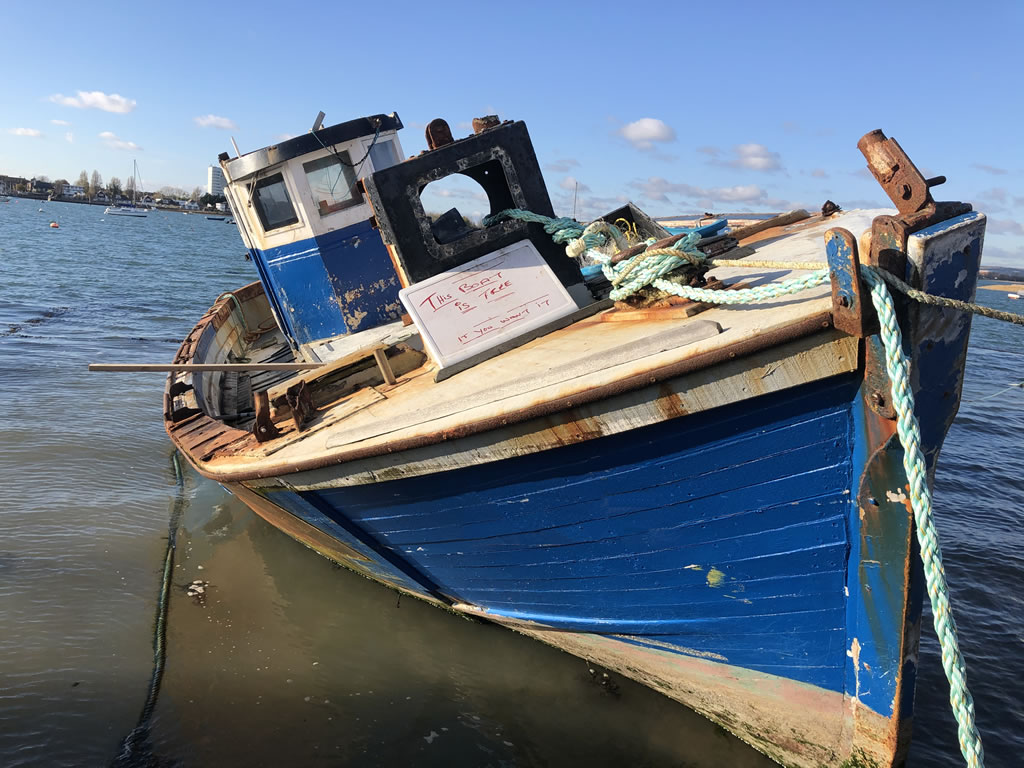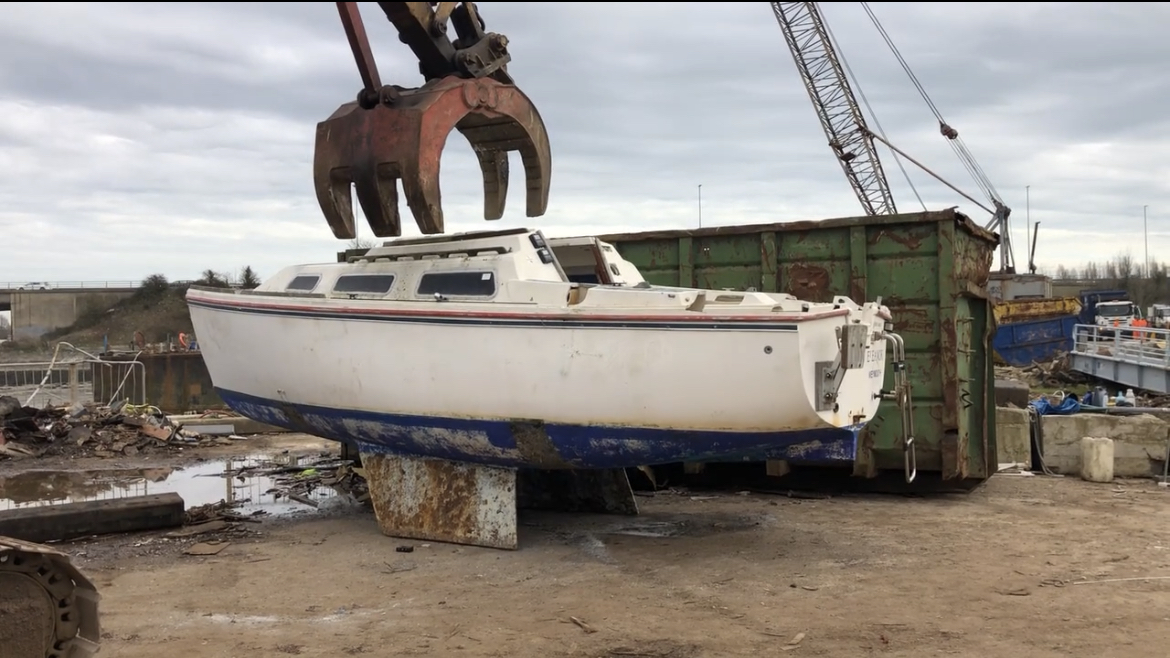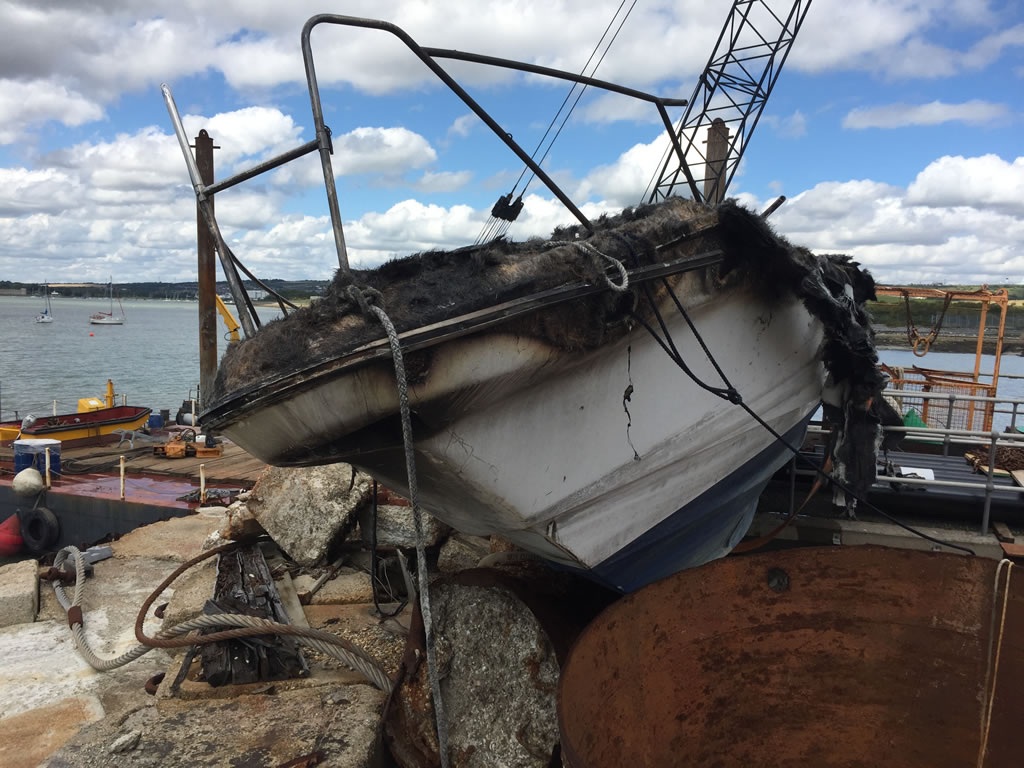Looking to the Future of Boat Disposal

Looking to the Future of Boat Disposal
The problem of end-of-life boats is happening whether we like it or not. If we choose not to acknowledge them it will still be a problem all the same.
It’s not just the boats that are coming to the end of their natural life. There is also the boats that are owned by people who are coming to the end of their life.
End of Life Boats
Many older people may not have the means to sell their boat. If they might pass away or simply become unable to use the boat. The boat may then technically become abandoned. As family members may try to wash their hands of the boat they have been left.
Marinas and boatyards will then have to deal with the boat as if it was their own which will cost them thousands in the long run.
Abandoned Boats
If these boats are then left on beaches, in harbours or in rivers it will become the local authorities responsibility. Taxpayers money or council taxpayers money would have to be used to clean up other people’s mess.
At Boatbreakers we already have a system in place to collect and dispose of boats from across the country. Currently, we get them back to our scrapyard and dispose of them. We can keep this system ticking over but eventually the number of boats will grow much larger. We then may get to a stage where we simply can’t scrap them quick enough. And if there is no owner around to pay for the process who will foot the bill?
Far Reduced Cost
We would like bigger organisations such as the RYA, universities or other marine institutions to try and help come up with a solution for end of life fibreglass. There needs to be a market created for the waste GRP. Then end-of-life boats can be disposed of for a far reduced cost.
If the cost of disposing a boat was lowered we believe more boat owners will do the responsible thing and scrap their boat. This will mean marinas, boatyards and moorings will become free for boats that are still in use.
As well as the issue of what happens to the end of life fibreglass there’s also the question of who’s paying for the boat to be scrapped.
Boat Scrap Insurance
We believe the right idea would be for a type of insurance. A fee could be paid each year on every boat which is kept aside in case that boat ever needs to be scrapped.
A boat may have multiple owners throughout her life and this idea would mean all of them would contribute towards the disposal process. Not just the unlucky last owner.
Worst Case Scenario
The worst-case scenario in the current situation would be a ban on fibreglass going to landfill. We would then be in a situation where there was no viable solution for the material. Baring in mind that the vast majority of modern boats across the world are made from GRP this is a scary thought.
Written By: Luke Edney
Luke completed a journalism degree in Brighton University and fortunately for us uses this in his communications, Facebook posts, Tweets and emails to tell all our enquirers and followers what we are up to. Without Luke we would be lost, he runs the office, keeps us organised and is like a terrier and never lets a tricky boat disposal job go un-photographed or Tweeted about.
He also manages all of our enquiries passing them to whoever in the team is the best suited to deal with it. We are teaching Luke how to drive a motorboat or sail a yacht so while he’s learning we suggest you keep out of the Solent!
When he’s not at work he’s a massive football fan (his Dad used to play for Portsmouth FC years ago) and seems to know everything there is to know about any player, anywhere. Next time you ring and he answers, think of a tricky football trivia question and ask him
Date Published: September 10, 2019
Last Modified: June 28, 2022
Related Articles
- Published On: December 9th, 2021
At Boatbreakers we are always happy to help with anyone who is looking to research End-of-Life-Boats. Judy Hilton contacted us earlier this year as she was starting a Masters at the University of Portsmouth.
- Published On: November 26th, 2019
The Boatbreakers team are always on the lookout for boats that we think are neglected or abandoned. Recently we saw an example of a potential boat giveaway.
- Published On: November 18th, 2023
At Boatbreakers we regularly deal with insurance companies to dispose of written off boats. But in the last few years we have noticed a rise in insurers giving damaged boats back to the owners.
- Published On: August 15th, 2017
At Boatbreakers we were recently contacted by someone studying for his masters who thesis is based on the issue of boat disposal in the UK and the current End of Life processes in place to deal with old boats.




